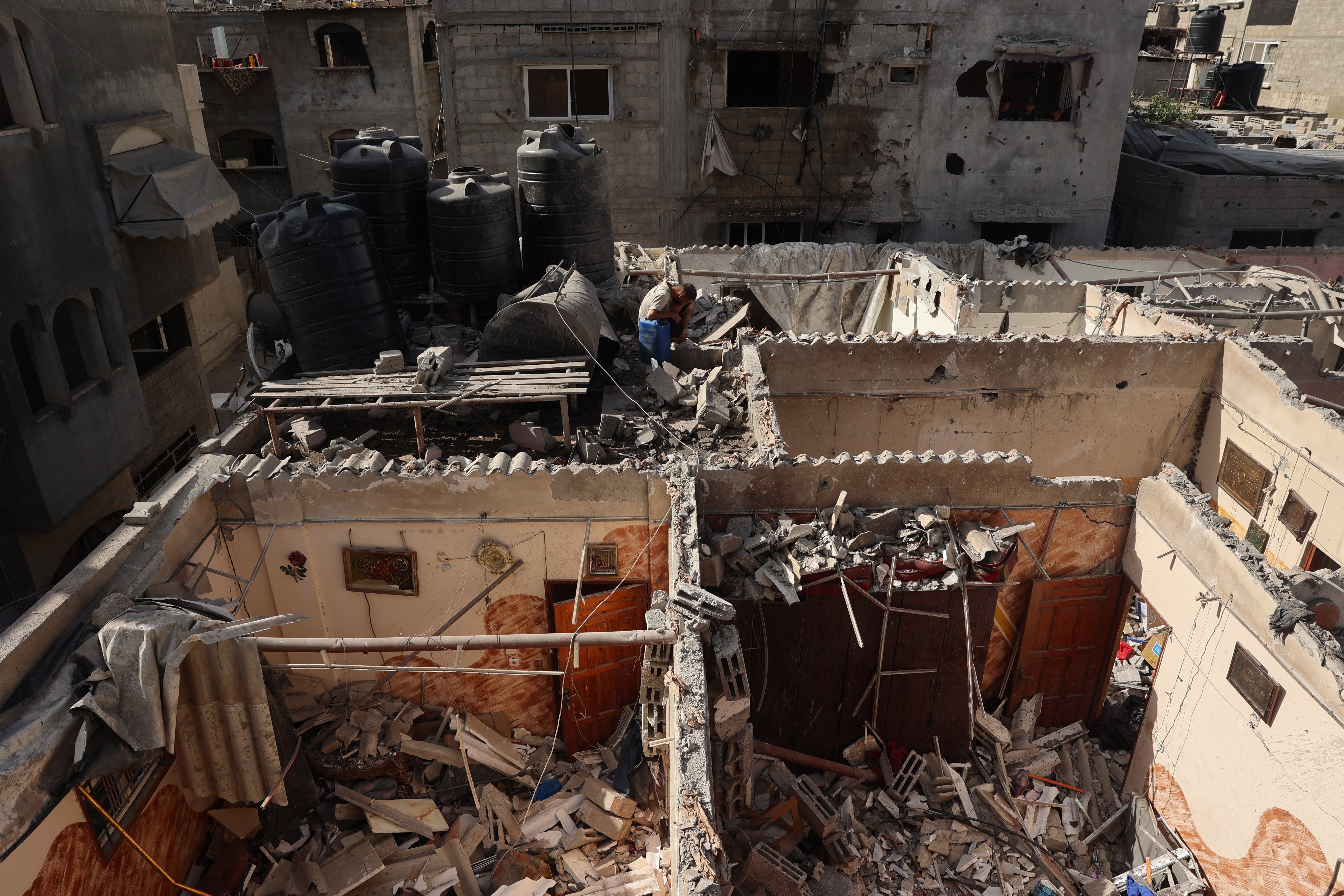The Independent's journalism is supported by our readers. When you purchase through links on our site, we may earn commission.
I’ve been on the ground in Rafah – what I saw there horrified me
When I was in Gaza last month, I witnessed hell on earth, writes Melanie Ward. A ground invasion of Rafah will cause mass human suffering and a further healthcare catastrophe. A ceasefire cannot come soon enough


On Monday, the Israeli military ordered 100,000 people in Eastern areas of Rafah to evacuate to areas adjacent to the already overcrowded coast, where there is not enough shelter to receive them, nor humanitarian supplies to sustain them. Israeli forces have since intensified their airstrikes on the city and taken control of the Rafah crossing on the Palestinian side. A disastrous military invasion of Rafah appears to have begun.
When I was in Gaza last month, I witnessed hell on earth. More than two million people trapped in a tiny piece of land, bombed continuously for more than 200 days and starved at the fastest rate the world has ever known while the fabric of life around them is destroyed: homes, hospitals, schools, universities and mosques obliterated.
Almost 35,000 people have been killed and 76,000 injured. Near the Rafah crossing, I saw the travesty of piles of desperately needed medical aid denied entry to Gaza: crutches, wheelchairs, anesthetic equipment, X-ray machines and more.
Words simply cannot convey the sheer scale of suffering and unmet humanitarian need that people in Gaza are experiencing.
Aid workers in Gaza have been working tirelessly to provide aid and medical support to those who need it, despite themselves being displaced from their homes. Their lives are also in pieces. Some in the north are eating birdseed to survive.
Over the past seven months, they have witnessed the Israeli military systematically dismantling the healthcare system that they have worked for many years to support and improve. Only 12 out of 36 hospitals are still even partially functional. In Rafah, there are only three hospitals which collectively have a limited number of beds to serve over one million people. One doctor told me that they only have 18 incubators for 58 babies. They cannot cope with the constant stream of injured people, a struggle compounded by the increase in acute malnutrition caused by Israel’s denial of adequate aid.
Once again, Israel’s evacuation orders in Rafah have sown fear and confusion among civilians who are already enduring terrible conditions inside the city. More than two thirds of Gaza’s 2.3 million population, including more than 600,000 children, have sought shelter in Rafah.
Untreated human waste sits breeding disease, in lakes right beside the tents where these children and their families are trying to survive. These flimsy, haphazard tents stretch all the way up the coast, trapped between the sea and a hostile army which stands accused of genocide at the world’s highest court. Rafah’s main hospital, the Abu Yousuf Najjar Hospital, currently only partially functioning, is also in the area ordered to evacuate. It will be impossible to transport seriously ill patients safely.
There is no feasible evacuation plan for Rafah that will protect civilians from the onslaught. From north to south, there is no safe place in Gaza – not even in so-called “safe zones.” Our own MAP-IRC Emergency Medical Team was targeted by an Israeli military airstrike in January, despite being in a deconflicted building in a “safe zone” at the time. Gaza remains the most dangerous place on earth to be a healthcare worker, an aid worker, a child or a civilian.
Israel’s latest offensive has now already put the Rafah and Kerem Shalom crossings out of action, further strangulating the limited aid that was being allowed into Gaza. This comes just days after the head of the World Food Programme assessed that northern Gaza is experiencing "full blown famine" that is "moving its way south".
Even if these crossings were to reopen soon, no plan has been presented to explain how aid can be safely distributed to those who need it with the Israeli military launching an offensive in these areas – and certainly not at the levels needed.
If Israel’s Rafah offensive is allowed to continue further, the killing of civilians will inevitably accelerate and much more of Gaza’s remaining infrastructure will be destroyed.
In one of Gaza’s main hospitals, a mother approached me to ask me to tell the world what was happening in Gaza. She assumed the world did not know; for if we knew what was being done then surely action would be taken to stop it. How do you tell a desperate mother that the world is indifferent to the suffering of her children, and that some, including our own country, continue to provide the weapons to facilitate it?
History will judge all who are complicit in what is being done to Palestinians in Gaza. It is an outrage that the UK government continues arms sales to Israel. We need an immediate and permanent ceasefire now. World leaders must prevent the invasion of Rafah going any further and avert a health and humanitarian disaster on a whole new scale.
Melanie Ward is CEO Medical Aid for Palestinians (MAP). Melanie was in Gaza from 8-10 April 2024






Join our commenting forum
Join thought-provoking conversations, follow other Independent readers and see their replies
Comments